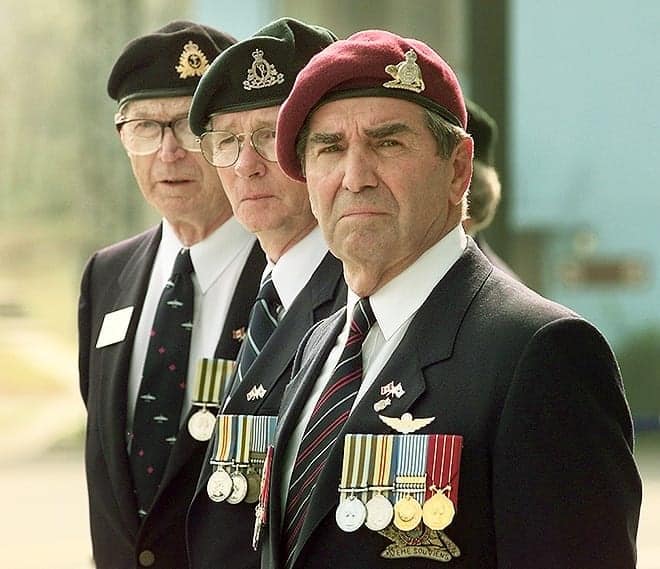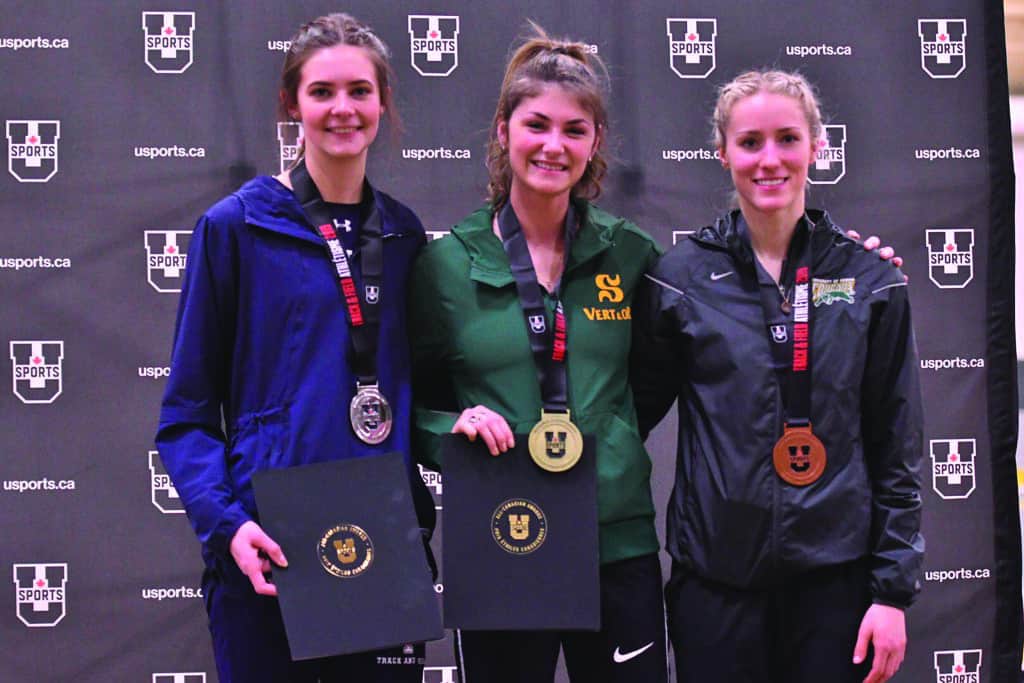Veterans host panel on campus

U of R alumni reflect on long, varied military careers
On Monday, the University of Regina played host to Murray Allan and Walter Martin, two Canadian veterans, who also happen to be U of R alumni. Allan and Martin hosted a panel discussion on their personal experiences within the Canadian Forces, what their service means to them, and how young people can better connect with Canadian veterans.
Walter Martin’s 35-year military career began as a cadet, and quickly progressed into the part-time reserves, which he used to fund a BA in economics from the U of R. In 2004, Martin deployed to Bosnia as part of the UN peacekeeping mission there, calling it a “success story for international and Canadian peacekeeping.”
After the death of his friend, Cpt. Trevor Greene, who was famously murdered with an axe during a talk with Afghan village elders in 2006, Martin volunteered to take Greene’s place. This was only denied due to the fact that Martin had not yet been home for a full year following his Bosnian deployment. Later that same year, Martin did deploy to Afghanistan, replacing Lt. William Turner who was killed by an IED. Much of Martin’s time in Afghanistan was focused on meeting with local leaders to determine their reconstruction needs, and organizing the construction of roads, dams, wells, and irrigation systems.
Murray Allan started at the University of Regina in 1968, and joined the full-time army in 1973 after some time with the Regina Rifle Regiment militia (precursor to the reserves). At age 25, Allan was an officer in charge of a platoon.
“You have to grow up quickly,” said Allan, noting that he was soon deployed to Cyprus as part of Operation Snowgoose.
During the Russian retreat from Afghanistan in 1988, Allan found himself there as a UN Investigator/Inspector, leaving home for a year with only a few days notice.
Allan had barely returned home before he was sent to Germany for three years during the final days of the Cold War. Allan served two more tours, first in Bosnia, then in Afghanistan where “death seemed to be a constant theme” and Allan attended more than twenty ramp ceremonies. Despite the high number of Canadian casualties, Allan insists, “I’m glad I did it.”
Allan emphasized that in his view, soldiering is among the “noble professions,” stating, “I’m proud that Canada did what it did in Afghanistan. They made the right decisions.”
On the subject of the “white poppy,” worn to symbolize support for non-violence rather than veterans, both panelists were surprisingly benevolent.
“Nobody hates war more than a soldier who has seen war. I despise war,” said Allan, but added, “I kind of wish they wouldn’t do it during the Remembrance Day period. Some other period during the year you might even convince me to wear a white poppy.”
Martin was equally accepting, stating that, “Canada is a free nation and people can wear whatever colour poppy they so desire. I, personally, am wearing a red one.”
Both men also noted that veterans are treated exceptionally well in Canada, and that through their own involvement in the Legion, they rarely see incidences of veteran needs not being met.
When asked how young Canadians could connect with veterans and Canada’s military history, Martin argued that, “The knowledge is there; it just has to be sought out… the written book is still a powerful instrument for conveying information.”
Allan agreed with Martin, encouraging people to open a dialogue with any veterans they meet.
“Sometimes it can get emotional,” says Allan, “but if you show an interest, veterans will open up… Grandpa doesn’t want to talk about the war because nobody asks him about it!”










